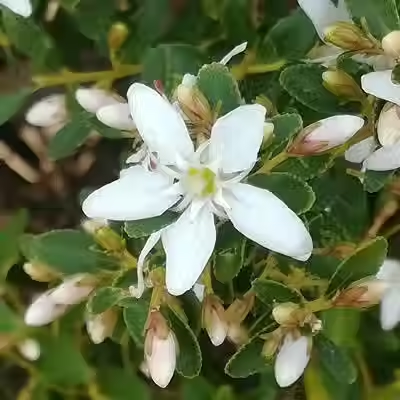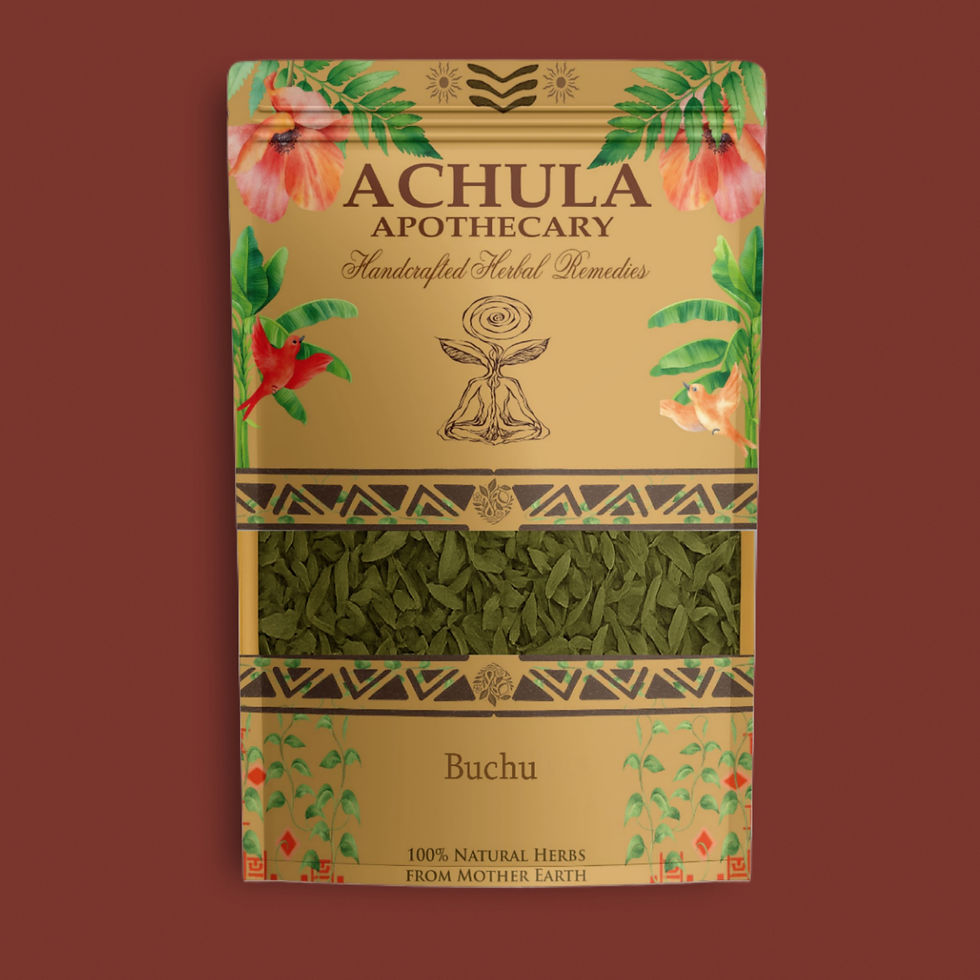Discover Buchu benefits: South Africa’s Ancient Herbal Secret for Modern Wellness
- Dave

- Jul 23, 2025
- 3 min read

If you’re into botanical teas, cleansing rituals, or simply exploring new herbal allies, it might be time to get to know buchu & its benefits.
Meet buchu a fragrant, invigorating herb from the mountains of South Africa that’s quickly gaining attention in the world of natural health. While still relatively unknown in the Netherlands and much of Europe, buchu has been cherished for centuries by the indigenous Khoisan people as a powerful healing plant. Now, it’s finding its way into herbal teas, infusions, and wellness routines around the world.
What Is Buchu?
Buchu (pronounced boo-koo) refers to a group of aromatic shrubs in the Agathosma genus, most commonly Agathosma betulina and Agathosma crenulata. These small, glossy-leafed plants are native to the Western Cape of South Africa and are known for their minty, blackcurrant-like scent.
Traditionally, the dried leaves were used as a natural antiseptic, diuretic, and digestive tonic. Today, buchu is still wild-harvested or organically grown and used in teas, tinctures, and even skincare for its cleansing and anti-inflammatory properties.

Why You Should Try Buchu
Buchu may be new to the Dutch herbal scene, but it offers a profile of benefits that align perfectly with modern wellness goals:
✅ Natural detoxifier – Supports healthy kidney and urinary tract function
✅ Anti-inflammatory & antimicrobial – Traditionally used for bladder infections and joint pain
✅ Digestive support – Can soothe bloating, gas, and sluggish digestion
✅ Rich in antioxidants – Helps fight oxidative stress and promotes overall vitality
✅ Uplifting aroma & taste – Minty, citrusy, and uniquely refreshing
With so many people searching for cleaner, more plant-based self-care, buchu offers a rare combination of heritage and function making it a perfect “hidden gem” for herbalists, tea lovers, and biohackers alike.
A Sacred Herb With Deep Cultural Roots
The Khoisan people of South Africa have used buchu for millennia as a sacred plant medicine valued for its cleansing energy and ability to rebalance the body. It was often infused in water and rubbed onto the body during spiritual ceremonies or used in healing tonics for infections and wounds.
In the 1700s, European settlers began using buchu as a natural remedy for kidney and bladder issues, and by the 19th century, it was exported globally as a “miracle” tincture. Despite its popularity in colonial apothecaries, buchu remained largely a South African botanical treasure until now.

How to Take Buchu: Tea Is Best
The most traditional and enjoyable way to experience buchu is as a hot or iced tea.
How to Make Buchu Tea:
You’ll need:
1–2 teaspoons dried buchu leaves
1.5 cups of hot (not boiling) water
Optional: lemon peel, mint, or rooibos to blend
Instructions:
Place buchu in a tea infuser or loose in a pot.
Pour hot water (about 85–90°C) over the leaves.
Steep for 5–8 minutes.
Strain and enjoy warm or over ice.
Pro tip: Add a slice of lemon and honey for a refreshing herbal detox tea. It also pairs beautifully with sparkling water for a caffeine-free energy drink alternative.
Dosing & Safety
A standard dose is 1–2 grams of dried leaves per cup.
Safe for daily use in moderate amounts.
Not recommended during pregnancy or breastfeeding without guidance.
As always, consult a herbalist or doctor if you're taking medications or have kidney issues.
Final Thoughts: Buchu Deserves the Spotlight
From the Cederberg mountains to your mug, buchu is more than just a detox tea it’s a botanical with centuries of healing tradition and the potential to support your body in deeply restorative ways.
As herbal trends continue to evolve, buchu stands out as a fresh, invigorating herb with a story worth sharing. So whether you’re a tea lover, wellness explorer, or just tired of the same old blends give buchu a try and be part of its revival in modern herbal culture.



